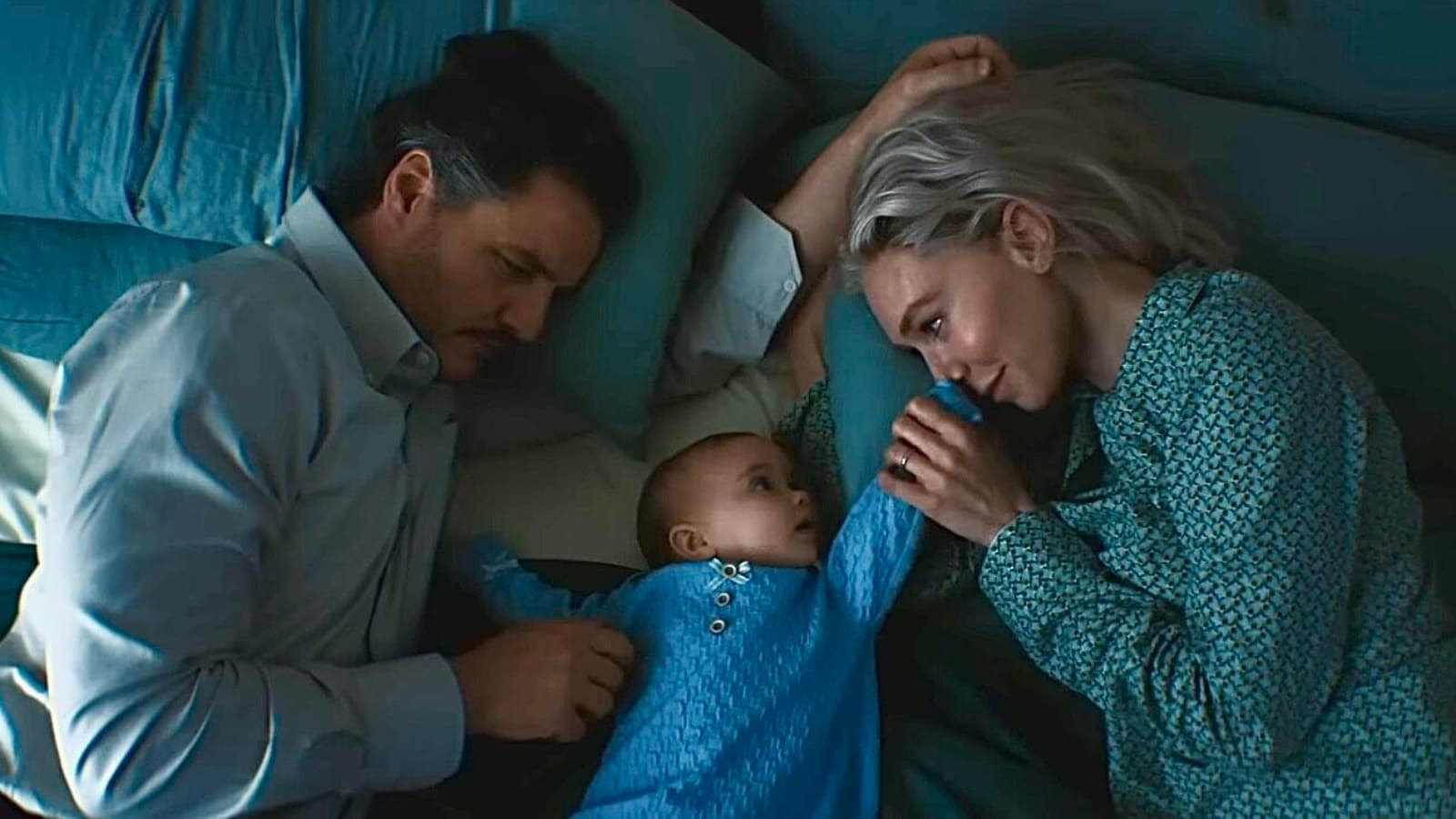'Weapons' review: What happens when an entire classroom disappears overnight?
Zach Cregger returns to the horror genre with Weapons, a film that boldly swings for atmospheric intensity and narrative experimentation following the success of his 2022 cult hit Barbarian. This time, he trades claustrophobic dread for a sprawling mystery involving the mass disappearance of 17 elementary school children, pushing further into surrealist horror but pulling back on psychological weight.
Julia Garner and Josh Brolin lead a chilling yet uneven horror from Zach Cregger, where 17 kids vanish and terror grips a small town in "Weapons."
Quantrell Colbert/Warner Bros.
The film opens with an image that's both beautiful and deeply disturbing — children leaving their homes at exactly 2:17 a.m., arms extended like airplane wings, vanishing into the suburban night as George Harrison’s “Beware of Darkness” plays. The scene conjures a surreal nightmare rooted in Americana, hinting at allegory and emotional resonance that the rest of the film only partially fulfills.
Cregger’s visual command remains formidable. Shot by Larkin Seiple, the cinematography is fluid and hypnotic, with long, elegant tracking shots that guide the viewer through eerily quiet streets and tense domestic spaces. The sound design, co-scored by Ryan and Hays Holladay and Cregger himself, heightens the unease with a score that veers from haunting to violent with alarming ease.
Despite this stylistic bravado, Weapons often struggles to support the thematic ambition it flirts with. Though it teases metaphors around collective trauma, mass violence, and societal scapegoating, these elements remain largely on the surface. The image of an empty classroom resonates as a haunting symbol of fear and loss, yet attempts to root the mystery in real-world anxieties around gun violence and community breakdown remain frustratingly underdeveloped.
A capable ensemble cast deepens the intrigue. Julia Garner leads as Justine Gandy, an elementary school teacher blindsided when only one of her students shows up after the unexplained mass disappearance. Her layered performance contrasts maternal tenderness with a growing, alcohol-tinged brittleness as she’s ostracized by the community. Josh Brolin brings a slow-burning menace to Archer, a grieving father whose rage and guilt threaten to boil over.
The structure unfolds in chapters named for individual characters — “Justine,” “Archer,” “Paul,” “Marcus,” “Alex,” and “James” — each providing new vantage points on the same chilling series of events. Alden Ehrenreich impresses as Paul, a disillusioned young cop with a complicated connection to Justine, while Austin Abrams injects desperate energy into James, a drug-addicted drifter who sees the tragedy as a way out of his squalor.
Strangeness intensifies as the film progresses. Justine’s sleuthing uncovers a household frozen in eerie stasis, and James stumbles upon horrors hidden behind suburban facades. When the story shifts toward supernatural horror in its second half, introducing a grotesque, hag-like figure reminiscent of both camp and folklore, the tonal shift is jarring but not unearned.
Cregger leans heavily into grotesque humor as the film reaches its climax, offering set pieces that balance between absurdity and savagery. The final act — a bloody, kinetic sequence that recalls Lord of the Flies — is as visually arresting as it is chaotic. Practical effects lend visceral weight to the carnage, favoring tactile horror over digital spectacle.
Still, beneath the expertly staged dread and energetic pacing lies a thematic emptiness that Cregger never quite fills. The glowing blue triangle introduced in the title card suggests occult depth, but little is explained or resolved in a meaningful way. Answers are alluded to, then swiftly buried under more shocks and grotesqueries.
A surreal final character enters late, upending assumptions and adding yet another layer of mystery, but without clarifying the broader mythology. The performance, wildly committed, complements Cregger’s affinity for mixing menace with the absurd. It’s a bold tonal gambit that largely pays off, even if the narrative never fully earns the emotional or intellectual weight it appears to chase.
What Weapons lacks in psychological rigor, it compensates for in sheer craft and boldness. Its ambition is unmistakable, and its visuals linger in the mind long after the credits roll. Cregger proves once again that he's a confident voice in horror, though one who might benefit from a co-writer to help ground his wild imagination in more human truths.










